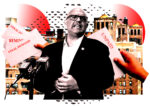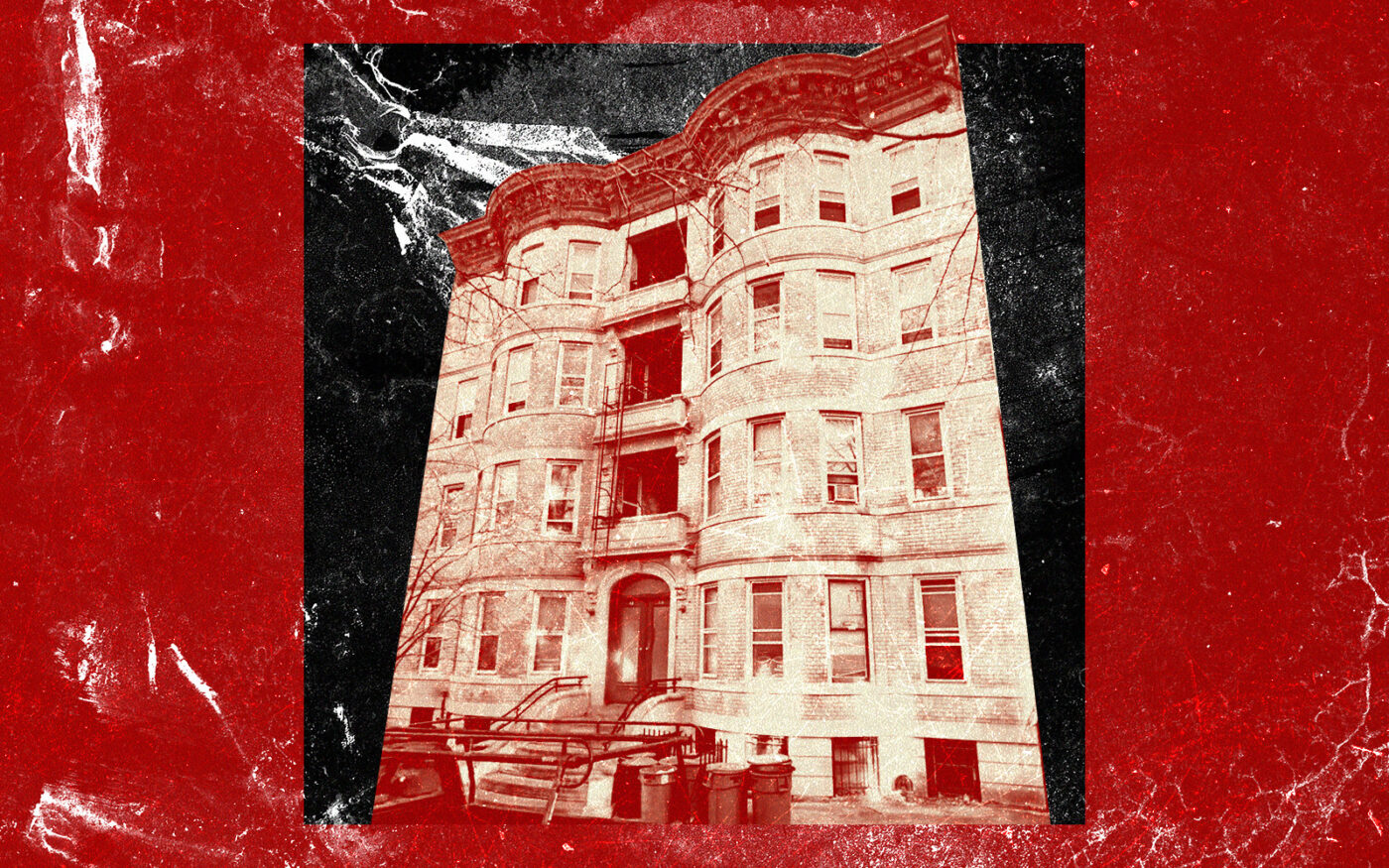The landlord of Wizarding World in Flatiron needs some magic: It has not paid the property’s tax bill in four years and owes the city $14 million.
Taxes were not a problem when Restoration Hardware was leasing 35,400 square feet at the building, 935 Broadway. But when the big retailer left in 2017, the property owners racked up expenses in trying to attract a new tenant. Three years later, Harry Potter New York took 11,400 square feet at a lower rent, yet the tax assessment was not reduced proportionally.
They are not the only commercial landlords in New York City with property tax issues.
Vornado Realty Trust, Oxford Properties, Crown Acquisitions and the Zucker Organization sued the city this week for illegally basing tax assessments on estimates and older leases that were more lucrative than the agreements now in place.
Tax certiorari attorneys claim that Department of Finance assessors and computers often ignore the income and expense report that commercial properties are required to file, and when they challenge their assessments, hearing officers often contend the owners should have gotten more rent.
Unpaid tax bills stem from a variety of circumstances. Some of the most delinquent owners were handed their buildings by the city decades ago after prior owners lost them for the same reason.
The biggest deadbeat in the five boroughs is a 16-unit building at 13-15 Strong Place on a quiet, tree-lined street in Cobble Hill. The Housing Development Finance Corporation property hasn’t paid the city a dime for taxes, repairs or water and sewer service since 1993. It owes $52.1 million, much of that in interest.
At 2201 Davidson Avenue in the Bronx, a lender foreclosed in 2012 and transferred the building to New Day Housing. Its unpaid taxes and fees have since ballooned to $24.6 million, including $430,276 for water.
Legal Aid had been working with both tenants and the city’s Department of Housing Preservation and Development to hand the property to a responsible nonprofit, but the Third-Party Transfer Program was suspended after complaints by owners who lost their properties.
In some cases, owners sign a regulatory agreement with the city ensuring tenants pay less rent while the building pays little to no taxes for 30 or more years, making it unlikely that any arrears will ever be collected.
Another HDFC that was turned into a co-op, 416 East 10th Street in the East Village, stopped paying in 2006 after its 30-year regulatory agreement ended. It now owes $5.4 million in property taxes and $483,0015 in water bills.
Nearby, an HDFC at 528 East 11th Street has not paid property taxes since 1999 and owes $10.4 million, of which $9.5 million is interest. It was transferred to the HDFC in 1981.
Five years later, Maria J. Garbin and Keith Miller snagged a $66,000 mortgage from HPD and agreed to pay all the taxes and water bills. The city deemed the mortgage satisfied in 2012, when it was still owed millions.
In 2020, the City Council authorized it to become a limited-equity co-op in return for a 40-year tax exemption under Article XI, but the owners do not appear to have signed the regulatory agreement.
Down the block at 504 East 11th Street, a privately owned multifamily walk-up has 85 HPD violations and has been in and out of lien sales for years. It owes the city $5.7 million. The tax bills go to an agent in South Carolina.
HPD did not return a request for comment on the status of these HDFC properties.
In Crown Heights, a privately owned, 25-unit walk-up with four stores at 219 Sullivan Place, aka 355 Rogers Avenue, owes the city $18.8 million back from taxes dating back to 1996 and another $1.08 million for water and sewer. The family’s neighboring 27-unit rental at 227 Sullivan owes $22.6 million in property taxes and $846,500 for water and sewer.
Both properties were slated for the city’s lien sale in 2018 but were quickly discharged from the sale.
A privately owned Times Square area rental building at 853 Seventh Avenue with 96 apartments and seven stores owes $5.65 million for real estate taxes and $379,000 for water and sewer. A representative complained they were dutifully paying on a plan and continuing to challenge its assessment while working on a mortgage to clean up the delinquency. They lost all their retail tenants and could not update unrented apartments under the new laws and garner enough rent to pay for the renovations.
The Adams administration, in a new effort to collect $1.3 billion in unpaid water and sewer bills, last month threatened to cut off service to its most delinquent customers after 15 days’ notice.
But those bills tend to be in the six figures. The biggest debtors also owe property taxes.
For example, Sharif El-Gamal’s stalled condominium at 45 Park Place, which topped off in 2019 and has been fighting off foreclosure for years, skipped its January payment along with several others and owes $8.2 million. El-Gamal’s Soho Properties did not return an email requesting comment.
Hotels also populate the non-payer list. The Chatwal hotel at 130 West 44th Street has an unpaid property tax bill of $5.8 million.
John Lam’s new Virgin Hotel building is $5.5 million behind on payments. Lam has complained in the past about the city’s onerous taxing of hotels and it’s not the first time he has been late at his numerous properties.
The Times Square souvenir shop at 1550 Broadway has been trying to catch up for years. It makes regular payments under a 2020 agreement but still owes $8.6 million, which is $4.2 million more than its repayment agreement. Last month the city, citing a previous error, raised the property’s taxable value to $9.7 million from $8.9 million.
Charles Cohen owes $4.45 million on his office building at 135 East 57th Street. He has blamed the landowner for blocking his attempt to convert the property to apartments.
Carlos Slim, one of the world’s richest men, stopped paying taxes on 415 Fifth Avenue after he transferred it to an associated entity in 2020 and now owes $18.8 million. His attorney did not respond to an email for comment.
Overall, the city’s property tax delinquency rate is 3.6 percent but there are troubling signs across the classes of properties and boroughs.
Brooklyn’s Class 2 delinquency is now 6.8 percent with the borough’s apartment buildings owing a total of $124 million.
A whopping 8.2 percent of Class 2 properties in the Bronx are behind on taxes to the tune of $56 million. Citywide, Class 2 sites owe $517 million; Manhattan accounts for $281 million of that, a delinquency of 3.5 percent.
Manhattan’s Class I (one- to three-family homes) has the highest delinquency rate at 7.5 percent, but the total debt is just $18 million. Class I has an overall delinquency of 5.1 percent with $192 million due the city. Queens is the biggest culprit, with 4.7 percent of homeowners owing $73 million.
Citywide, the heftiest balance, at $405 million, is owed by Class 4. Manhattan commercial properties’ 1.7 percent delinquency is the lowest, but their debt of $162 million is the highest among the boroughs. By contrast, Brooklyn’s Class 4 delinquency rate is 8.2 percent for a total of $98.1 million owed.
Staten Island’s Class 4 owe the least at $20 million but have a delinquency of 7.7 percent while Bronx commercial properties are behind by 7.6 percent and owe $40 million.
The entire property tax system is being challenged in court by an industry-backed group that calls it discriminatory. The Court of Appeals ruled last month that a lower court was wrong to dismiss the lawsuit.
Read more



